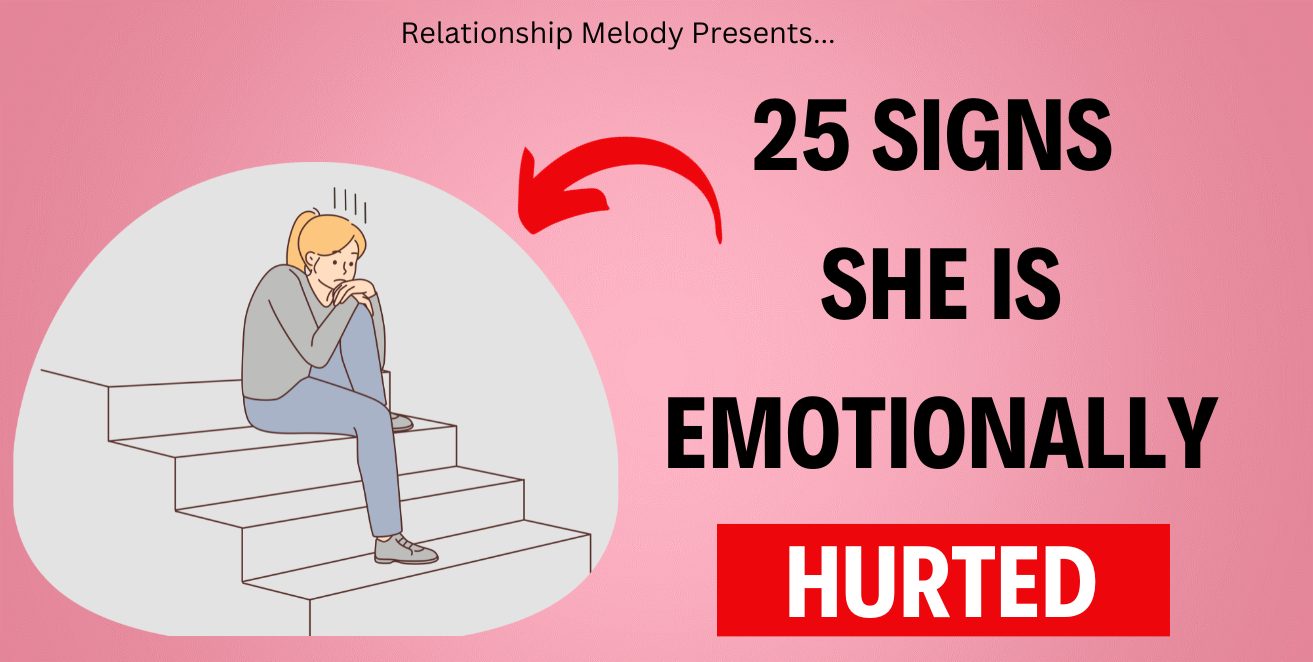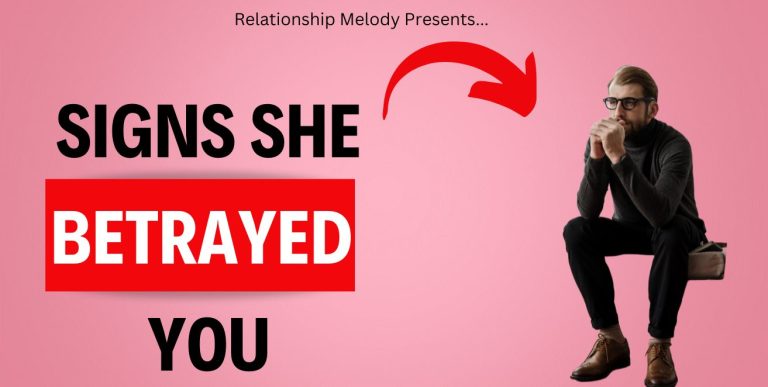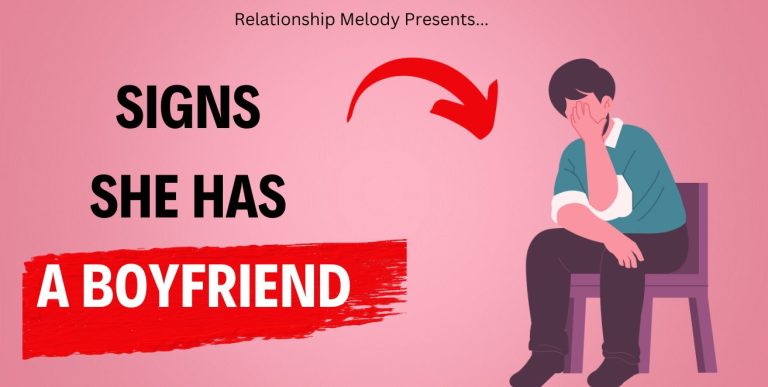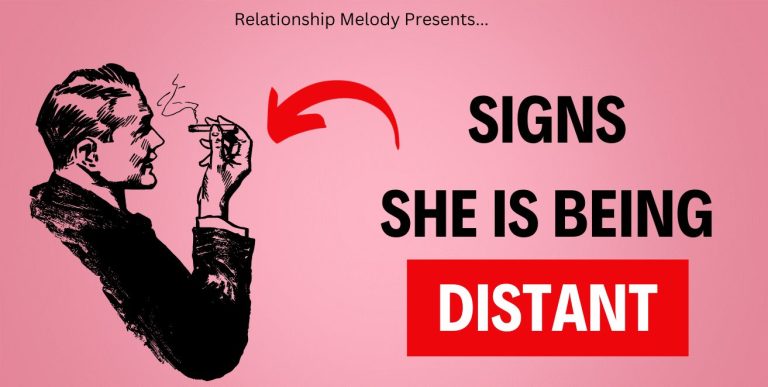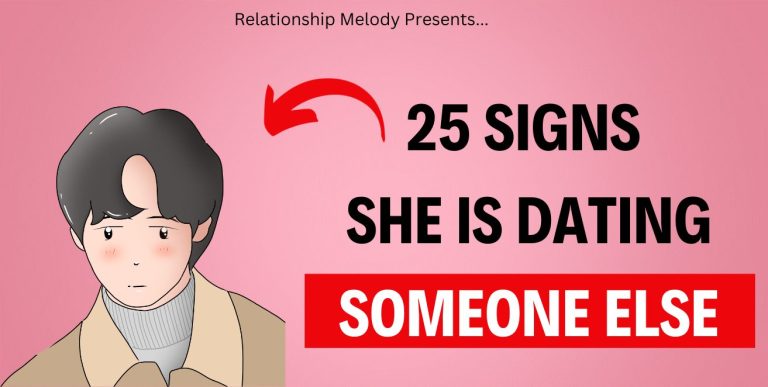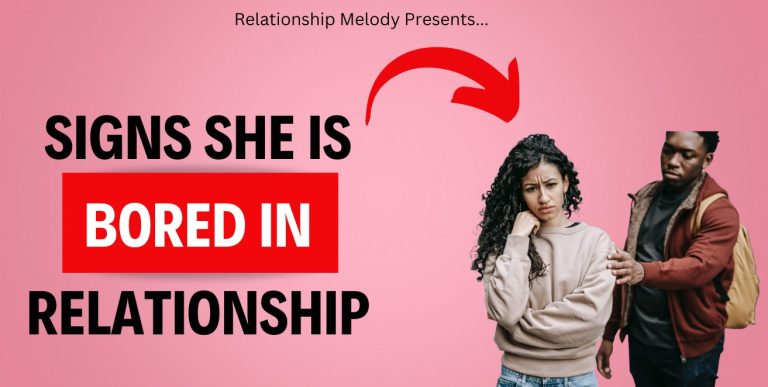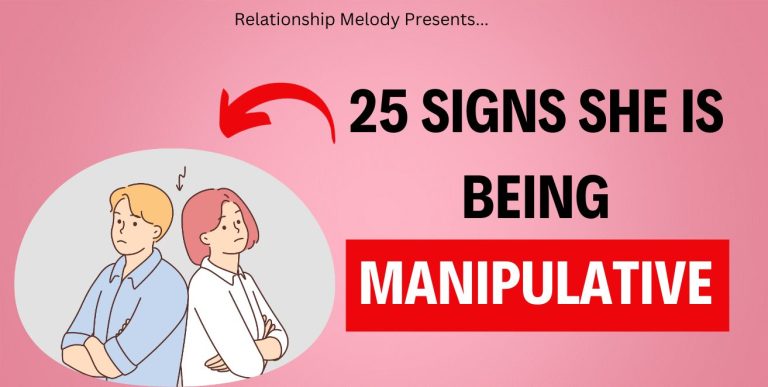25 Signs She Is Emotionally Hurted
Emotional pain can deeply impact a person’s well-being and relationships.
When someone has been emotionally hurt, it is important to recognize the signs and provide support and understanding.
In this blog post, we will explore 25 signs that may indicate she is emotionally hurt.
Understanding these signs can help you offer compassion and create a safe space for healing.
Remember, emotional healing takes time and patience, and by being aware of these signs, you can contribute to the process of recovery and growth.
25 Signs She Is Emotionally Hurted
These are the 25 signs that you need to know.
Sign #1: Withdrawal and Isolation:
If she begins to withdraw from social activities, isolates herself, or avoids interaction with loved ones, it may indicate that she is emotionally hurt and struggling to connect with others.
Sign #2: Changes in Sleep Patterns:
When she experiences disturbances in her sleep patterns, such as insomnia or excessive sleeping, it can be a sign of emotional pain and inner turmoil.
Sign #3: Loss of Interest:
If she suddenly loses interest in activities or hobbies she once enjoyed, it could be an indication that emotional pain has affected her ability to find pleasure or motivation.
Sign #4: Frequent Mood Swings:
When she exhibits frequent and intense mood swings, shifting from sadness to anger or irritability without apparent cause, it suggests emotional turmoil and unresolved pain.
Sign #5: Emotional Sensitivity:
If she becomes highly sensitive and reacts strongly to seemingly minor triggers or displays heightened emotional responses, it may indicate that she is carrying emotional wounds.
Sign #6: Avoidance of Emotional Intimacy:
When she avoids emotional intimacy, struggles to open up, or keeps her emotions guarded, it signifies that past emotional hurt has made her hesitant to be vulnerable in relationships.
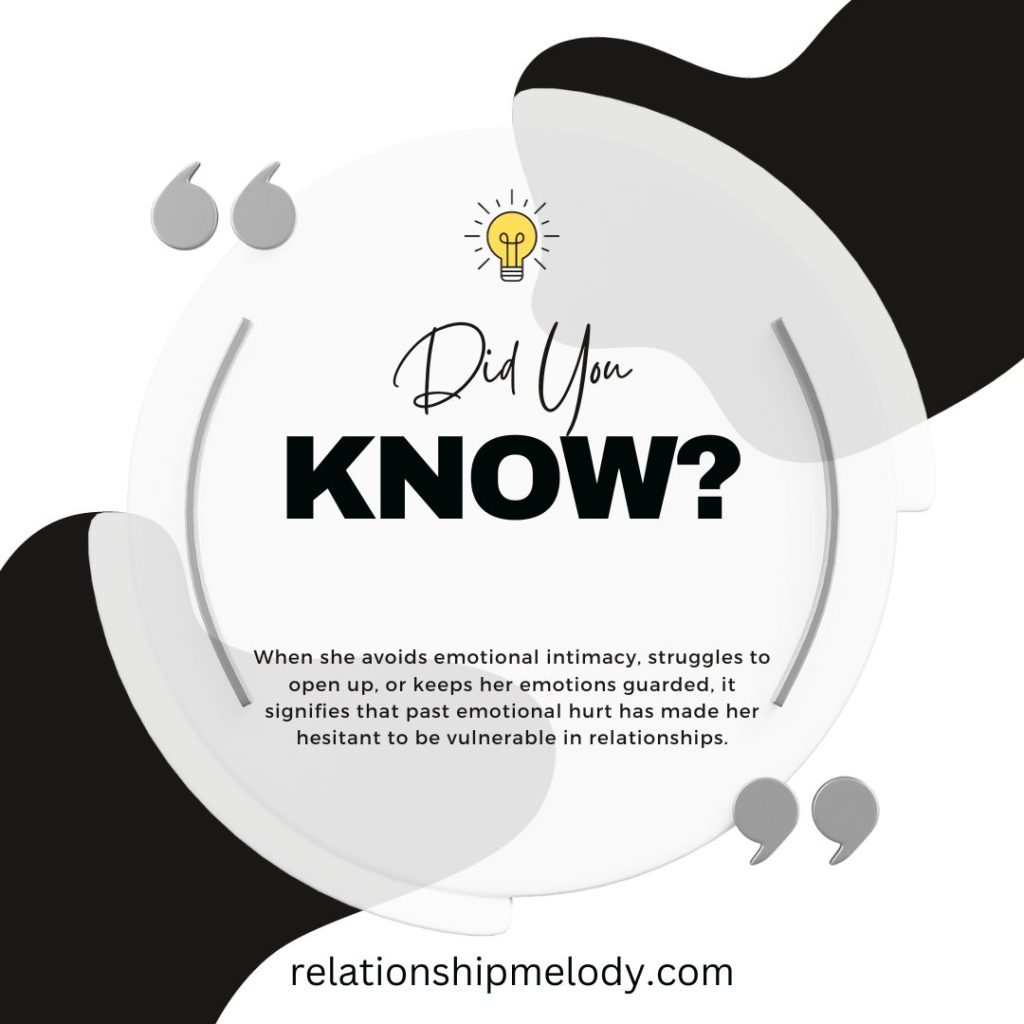
Sign #7: Self-Blame and Guilt:
If she consistently blames herself for past events or experiences excessive guilt, even when it may not be warranted, it suggests that she is carrying unresolved emotional pain and self-blame.
Sign #8: Low Self-Esteem:
When she displays signs of low self-esteem, constantly doubting herself, or having a negative self-image, it indicates that emotional hurt has impacted her self-worth and self-perception.
Sign #9: Increased Irritability:
If she becomes easily irritable, frequently lashes out at others, or displays anger and frustration, it may be a manifestation of underlying emotional pain that needs to be addressed.
Sign #10: Loss of Appetite or Overeating:
When she experiences significant changes in her eating patterns, such as a loss of appetite or turning to food for emotional comfort, it can be an indication of emotional distress and the need for support.
Sign #11: Difficulty Trusting Others:
If she struggles to trust others, constantly doubts their intentions, or becomes overly suspicious, it suggests that past emotional hurt has affected her ability to trust and form secure connections.
Sign #12: Emotional Numbness:
When she exhibits a general sense of emotional numbness, feeling disconnected from her own emotions or those of others, it indicates that she may be protecting herself from further emotional pain.
Sign #13: Increased Sensitivity to Rejection:
If she becomes overly sensitive to rejection or perceives even minor setbacks as personal rejections, it suggests that past emotional hurt has made her more vulnerable to feelings of abandonment or inadequacy.
Sign #14: Self-Isolation:
When she actively avoids social interactions, isolates herself from friends and loved ones, and prefers to be alone, it can be a sign that she is struggling with emotional hurt and prefers solitude as a coping mechanism.
Sign #15: Emotional Triggers:
If she displays strong emotional reactions to specific triggers or reminders of past painful experiences, it indicates that unresolved emotional wounds are still affecting her well-being.
Read more like this: signs she is emotionally unavailable
Sign #16: Excessive Need for Control:
When she exhibits an excessive need for control in various aspects of her life, it can be a defense mechanism to prevent further emotional pain or a way to regain a sense of security.
Sign #17: Reluctance to Seek Help:
If she is resistant to seeking professional help or support from others, it suggests that she may be reluctant to confront and process her emotional pain, possibly due to fear or past negative experiences.
Sign #18: Difficulty in Letting Go:
When she struggles to let go of past hurts or holds onto grudges, it signifies that she is carrying emotional baggage that needs to be addressed to heal and move forward.
Sign #19: Escapist Behaviors:
If she engages in escapist behaviors such as excessive drinking, substance abuse, or other self-destructive habits, it can be a sign that she is using these methods to cope with her emotional pain.
Sign #20: Hypervigilance:
When she becomes hypervigilant, constantly on guard for potential threats or dangers, it suggests that she is carrying emotional wounds that have heightened her sense of vulnerability.
Sign #21: Self-Imposed Isolation:
If she deliberately isolates herself from potential sources of emotional support, distances herself from loved ones, or avoids social activities, it indicates a need to protect herself from further emotional pain.
Sign #22: Disrupted Relationships:
When she experiences difficulties in maintaining healthy and stable relationships, constantly encountering conflicts or challenges in forming deep connections, it suggests that emotional hurt has impacted her ability to trust and connect with others.
Sign #23: Difficulty Expressing Emotions:
If she finds it challenging to express her emotions, frequently suppressing or bottling them up, it suggests that she may be struggling with unresolved emotional pain and needs support in processing and communicating her feelings.
Sign #24: Fear of Vulnerability:
When she displays an intense fear of vulnerability, hesitating to open up or share her emotions due to the fear of being hurt again, it indicates that past emotional wounds have impacted her ability to be vulnerable in relationships.
Sign #25: Emotional Breakdowns:
If she experiences frequent emotional breakdowns, characterized by intense crying spells, feelings of hopelessness, or being overwhelmed by emotions, it suggests that she is carrying deep emotional pain that requires attention and care.
Conclusion
Recognizing the signs of emotional hurt in a person is crucial for offering support, compassion, and understanding.
It’s important to remember that healing is a personal journey, and everyone requires different levels of time and support.
If you notice several of these signs in someone you care about, encourage them to seek professional help or reach out to support networks.
By creating a safe and empathetic environment, you can play a significant role in helping them heal and move towards emotional well-being.
Liked Our Article? Feel Free To Support Us
Our Patreon Page: https://www.patreon.com
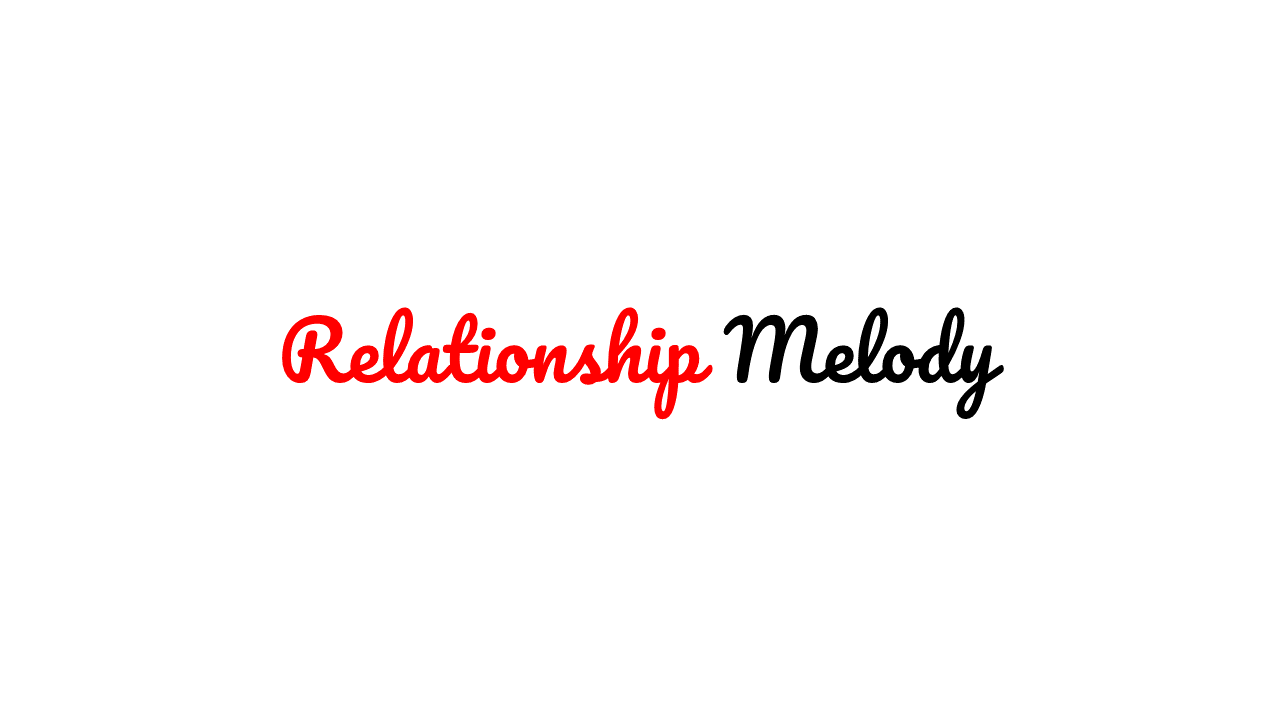
Welcome to Relationship Melody! Our website is dedicated to all things on relationships, dating, and love! We are passionate about helping you navigate the ups and downs of love, and our goal is to provide you with valuable insights and information that will make your journey toward a fulfilling relationship smoother and more enjoyable.

